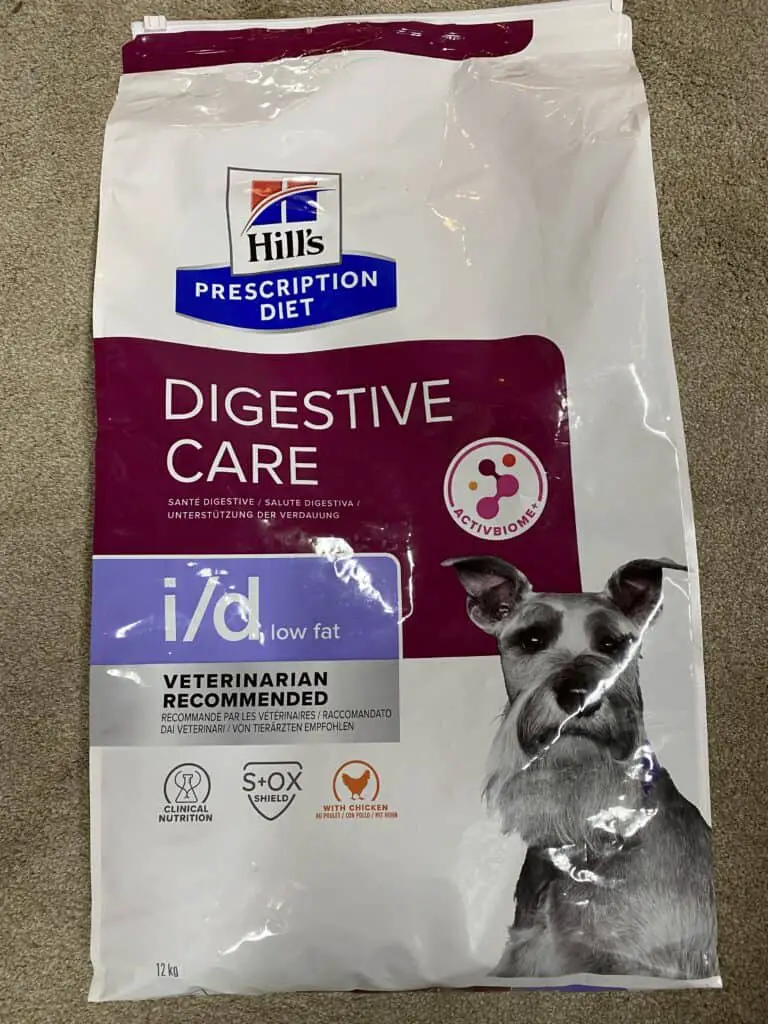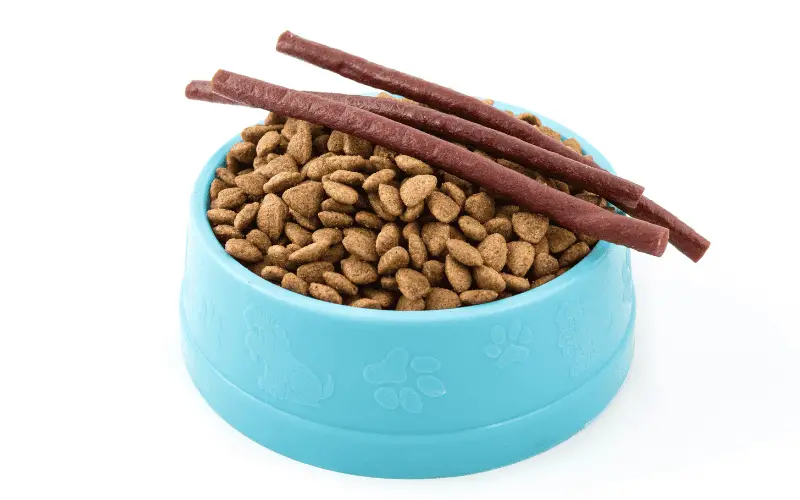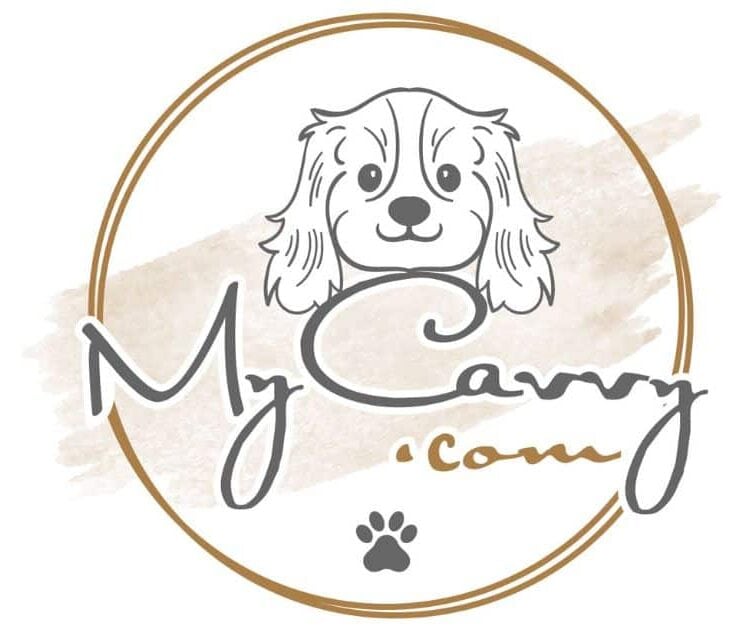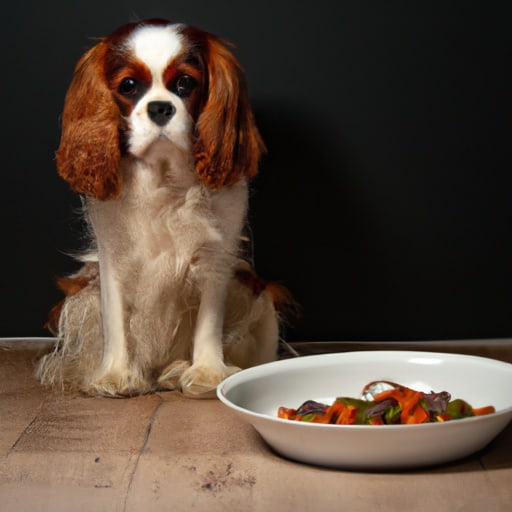As proud owners of Cavalier King Charles Spaniels, we have strong bonds with our pets and want the best for them. Occasionally, our furry friends can get sick and have upset stomachs, but is it common amongst the breed? One question often asked is, “Do Cavaliers Have Sensitive Stomachs?”
Cavalier King Charles Spaniels are especially prone to gastritis, a stomach lining inflammation. Gastritis can occur in acute and chronic episodes, potentially causing discomfort for our pets.
However, some Cavaliers may have congenital defects that result in gastrointestinal problems. Together we will look into why Cavalier King Charles Spaniels are prone to sensitive stomachs, what causes this issue, and how we can prevent it in the future.
Cavvy Characteristics
There are various reasons why Cavalier King Charles Spaniels might suffer from sensitive stomachs. One possible factor is a genetic predisposition, making them more susceptible to digestive issues.
Also, we all know that Cavaliers tend to be food-obsessed, which can lead to overeating and consuming foods they shouldn’t. This, in turn, can potentially cause stomach problems.
Providing them with a well-balanced diet specifically formulated for their breed is essential to prevent stomach sensitivities.
Avoid feeding them table scraps or low-quality dog food, as these may contain ingredients or fillers that could exacerbate their sensitivities. Instead, opt for high-quality dog food that meets their nutritional needs and maintains optimal digestive health for the long term.
Why Cavaliers Suffer from Sensitive Stomachs
Several factors may cause a sensitive stomach, with diet being the most common. Some dogs may have trouble with sudden changes in their diet, so swapping food brands and flavors or giving too many treats can cause problems.
Additionally, some Cavalier King Charles Spaniels develop sensitive stomachs due to difficulty digesting fats and protein. Our Cavalier, Lady, needs a special low-fat diet and only boiled or steamed chicken breast treats.

Food sensitivities or allergies are other common reasons dogs may have a sensitive stomach. For instance, dogs may react negatively to certain ingredients in their food, making them intolerant or allergic to those components.
To prevent sensitive stomach issues in our Cavalier King Charles Spaniels, we can take several steps, such as:
- Introducing new foods gradually: When changing their diet, it’s essential to do so slowly, mixing their old food with the new food over 10 days source.
- Choosing high-quality ingredients: Opt for dog food with high-quality ingredients that promote good digestion and overall health.
- Consulting with your veterinarian: If you suspect your dog has a food intolerance or allergy, it’s essential to consult with a vet to determine the best course of action.
Identifying Sensitive Stomachs in Cavaliers
Understanding the signs, causes, and preventive measures that can aid our furry companions in leading healthier and happier lives is important because we don’t want a human’s best friend to be in pain.
Symptoms
A sensitive dog stomach, including Cavalier King Charles Spaniels, can manifest in various ways. Some common symptoms to watch out for are occasional vomiting, recurring diarrhea, and excessive gas. If your dog shows one or more of these signs, they might have a sensitive stomach.
Causes
The most common cause of a sensitive stomach in dogs is an issue with their diet. Some dogs, like our Cavalier King Charles Spaniels, can´t handle sudden changes in their diet.
Switching to different food brands and too many fatty treats can cause a sensitive stomach. Also, trouble digesting certain nutrients such as proteins, fats, carbohydrates, or fiber could lead to incomplete digestion.
Prevention
As the old saying goes, prevention is better than cure, and I wholeheartedly agree. Some key steps we can take are:
- Provide a consistent, high-quality diet that suits your dog’s specific needs.
- Avoid sudden changes in food brands, flavors, or ingredients.
- Limit the number of treats and table scraps given to your dog, but preferably no scraps.
- If food allergies or intolerances are identified, eliminate the problematic ingredients from their diet.
- If your veterinarian recommends, introduce digestive enzymes or supplements to aid the nutrient breakdown and absorption.
By closely monitoring our Cavvys and noting the pattern of what they eat and when they are sick, you will be more knowledgeable on what they can tolerate if they are sensitive to certain foods.

Dietary Considerations
We have been talking about food intolerances a lot, but what is best for your dog may be completely different from another dog. However, there are specific guidelines on what to feed your Cavalier and what not to feed your Cavalier.
Foods to Avoid
Certain foods may irritate the stomachs of our Cavaliers. Foods to avoid are:
- Spicy foods
- Fatty foods
- Foods containing artificial ingredients
- Gluten
- Wheat
- Soy
These are just some areas to avoid, but remember that many foods safe for humans to consume are toxic to dogs.
Selecting the Right Food
When choosing the right food for our Cavalier King Charles Spaniels, it is essential to prioritize food with high-quality ingredients, such as boiled chicken breast, rice, and plain yogurt with no sugar, as the occasional treat.
Brown wholegrain rice is less refined and easier to digest, so this is preferable to white rice.
Be cautious of cheap dog foods that contain a lot of additives and too many ingredients you haven’t heard of before. These can be detrimental to your dog’s health. If you are ever unsure, speak to your local veterinarian.
Feeding Frequency and Schedule
For Cavvys with sensitive stomachs, it is beneficial to break their meals into several smaller portions throughout the day. We tend to feed our Lady 3 times a day but have been told to reduce this to twice daily due to her diabetes.
This approach allows them to digest their food more easily, preventing stomach bloating, which causes discomfort.

Probiotics and Supplements
Supplements and probiotics for your Cavalier King Charles Spaniel can be a great addition to their diet. However, before purchasing, consider looking at their diet first, as you may be able to provide natural supplements with fruits and vegetables.
Medical Assistance
You care very much for your Cavvy. If you didn’t, you wouldn’t be reading this article. So when do you go from taking care of their diet and watching their fat level intake to seeking medical attention?
When to Consult a Veterinarian
If your Cavalier King Charles Spaniel displays signs of persistent vomiting, diarrhea, weight loss, or lethargy, it’s crucial to consult your veterinarian as soon as possible.
As discussed in Cavalier Health, these symptoms may indicate a more serious gastrointestinal issue, such as gastroesophageal reflux disease (GERD). Prompt medical attention can help diagnose the underlying cause and recommend appropriate treatments to resolve your dog’s stomach problems.
Home Remedies and Self Help
We can try some home remedies and self-help strategies for mild cases of stomach sensitivity. Here are a few tips to help your Cavalier:
- Feed smaller, more frequent meals: Instead of providing one or two large meals, try offering smaller portions throughout the day. This can help ease digestion and reduce the risk of stomach discomfort and bloating.
- Choose a high-quality dog food: Try a grain-free formula that is low in fat, easily digestible, and highly nutritious.
- Monitor treats and chews: Ensure you are not overfeeding treats or offering chews that may contribute to stomach sensitivity, and check if they contain only natural ingredients.
- Keep stress levels low: Anxiety and stress can worsen digestive issues. Provide your dog with a calm and comfortable environment, and avoid exposure to stressors.
These simple strategies may help alleviate your dog’s stomach sensitivity and prevent future occurrences. Remember that if symptoms persist or worsen, it is essential to consult a veterinarian for professional guidance.
Regular vet check-ups can also be helpful in monitoring and addressing any digestive issues that may arise. Watch for signs of stomach sensitivities like vomiting, diarrhea, or loss of appetite, and consult your veterinarian promptly if these symptoms occur. With proper care and attention to their diet, these lovely dogs can live happy and healthy lives, regardless of their sensitive stomachs.

